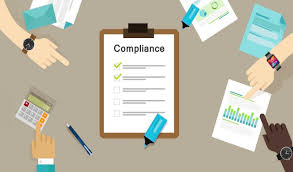There were various discussions with the release of Time Matters 13 within the Time Matters consultant and user communities regarding the “new” Client Portal and its overall purpose. Even now, after the release of version 14.1, consultants and firm administrators are confused as to how it may benefit their clients and firms, and how they might use it to benefit their customers.
There is no doubt in our circle that the new portal isn’t really a true portal at all, at least not from the technical sense of the word as commonly understood today. Here at ELS we are asking ourselves “How can we make the portal better?”
This is not to say that the current Client Portal in Time Matters isn’t useful or beneficial to Time Matters customers. The new Client Portal powered by WatchDox included with the Time Matters 13 release, and now in Version 14.1, is a pretty neat feature, and possibly the most interesting feature addition for Time Matters in some years.
It allows firms and attorneys to securely share documents with their clients through the WatchDox online collaboration platform. For some practice areas of law this could be a huge advantage. Some of the obvious practice areas might be Real Estate or Corporate law. However, any law practice that has clients interested in simply seeing and reading filed documents or correspondence could benefit from this “Portal”.
With that said, when I think of a portal, in the technical and customer service sense of the word, I think of an online toolbox for different business functionalities. When introduced to the new Client Portal I found myself asking the question: “does this portal go far enough?”
Most web portals provide functionality to their customers who are requesting information via email or through help tickets, or who need to update their demographic information, view the statuses of their cases/requests (or any service they may be providing), among many other things.
Let’s take a detailed look at some of the features an ELS developed Client Portal might have:
- Online Intake Form – An online intake form with the ability for custom fields that would accept information from prospective law firm clients. It would create a TM contact record using this information, email a staff person or group according to practice area or type of case chosen. and create an account/login for the prospective client.
- Checking case status – Allow both current and prospective law firm clients to check the status or milestones of their case or prospective case.
- Demographic info form – Allow law firm clients to update their address, phone number, etc., from the web and update TM accordingly.
- Document sharing and collaboration – Share documents with clients.
- Request Assistance – A form to allow law firm clients to request a phone call, or send an email to their attorney/legal assistant, without seeing their actual email address. Generate help tickets for information. This could cut down on phone calls and allow for a better and more organized response system.
- Helpful Links – Common and useful links for law firm clients according to case type.
These are just some of the features that we would include in a Client Portal. There are many other useful tools that could be included in such a portal. ELS believes this could be a reality. But most importantly, it is our readers’ opinions that matters most!
Would this ultimate portal benefit law firms? Would this benefit your firm and your clients? What do you think about this type of Client Portal?
Tell us what you think in the comment box below!
Want to have a more detailed conversation about Client Portals? Give us a call at 877-ELS-0555 or send an email to info@easternlegalsystems.com to get a conversation started.

Jack Schaller has been active in the field of law office technology since 1989, and has worked with a variety of commercial accounting, legal billing, practice management, and document management software products during his twenty plus years in the software consulting field. During his tenure as a software consultant he has garnered many sales and service awards for his work with legal software products. Jack is a frequent presenter at legal conferences and seminars, and is a regular contributor to TechnoLawyer and other technology publications.



